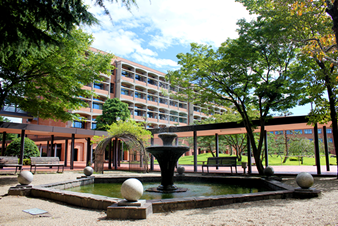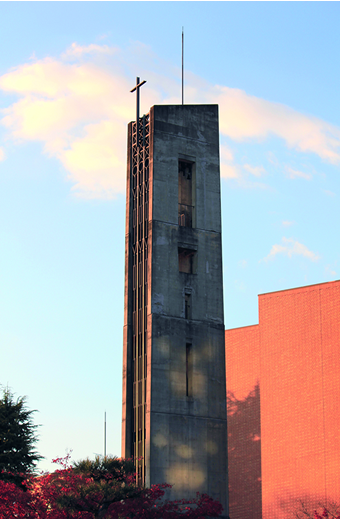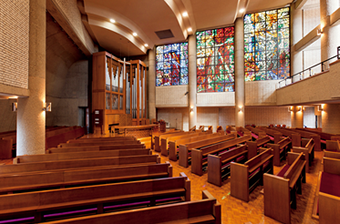Miyagi Gakuin Women’s University Founding Principles
The Founding Principles express the basic educational ideals on which this university was built.
Education at Miyagi Gakuin Women’s University is based on the spirit of Evangelical Christianity, to educate women to fear God, to seek truth with both freedom and humility, to respect all people on the principle of loving all our neighbors, and to work for the better welfare of all humans and to contribute to world peace.

Ethics Charter
The environment surrounding universities is becoming increasingly diverse and complicated. Accordingly, the social role of education and research is also becoming more important.
Miyagi Gakuin Women’s University is responding to these social needs through its education and research, conducted in line with the university’s founding principles. We aim to educate members of society to have a broad understanding of both culture and society.
The principles of freedom of education and research, and the guarantee of self-determination for educators and researchers must be maintained, but in order to maintain these principles, educators and researchers are required to maintain the highest standards of moral principles and conduct in their work.
We at Miyagi Gakuin Women’s University will do everything possible to gain the trust and respect of society through our education and research.

History and Outline of Miyagi Gakuin
Miyagi Gakuin Women’s University has a history of over 130 years. It started out as Miyagi Girls‘ School, founded by OSHIKAWA Masayoshi of the Church of Christ in Japan, with the assistance of missionary William Edwin HOI on 18th September, 1886. The Girls’ School was expanded into a high school in 1911, and chartered as a private university in 1949. Miyagi Gakuin today comprises a daycare/preschool, junior high school, senior high school, university and graduate school.
Today, the university has four faculties (Faculty of Contemporary Business, Faculty of Education, Faculty of Human Life Sciences, Faculty of Arts) with nine departments, and two graduate schools (Research School in the Humanities, Research School in Health and Nutrition The total number of students is about 3,000, and the overall student to teacher ratio is between 25 to 30 students.

